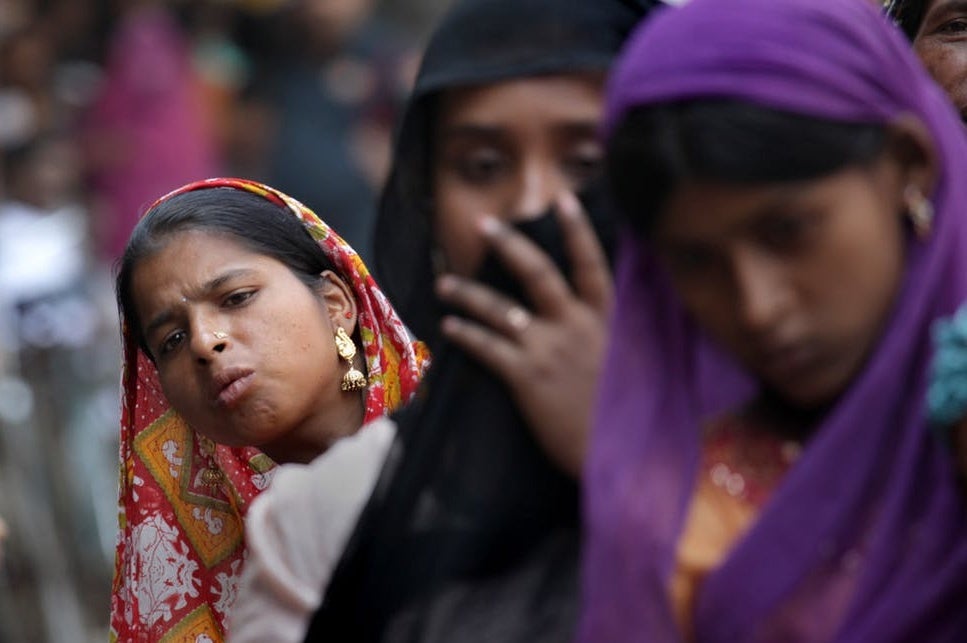'Ethics dumping' – the dark side of international research
When high-income researchers take unethical methods abroad it’s the poor who suffer

Knowingly inflicting severe harm on human beings for the purpose of research is one of the most serious human rights abuses possible. Cases of exploitation in research have been used to illustrate unacceptable practices since the mid-20th century. Medical students all over the world have learned how not to conduct research by discussing the horrendous Nazi experiments and the more recent US Tuskegee trials.
In both cases, highly vulnerable populations were exploited: German medical doctors undertook their experiments on concentration camp detainees, while US medical doctors exploited Black US citizens by studying the natural progression of syphilis without providing available cures.
Both Nazi Germany and the US in the Sixties and Seventies had ethics guidelines for the conduct of research. The Prussian guidelines of 1900 are even regarded as the earliest official regulation of non-therapeutic medical research in the Western world. But neither had mechanisms to ensure compliance.

Research ethics committees were only established in the mid-to-late 1970s in both Germany and the US. And today the existence of research ethics committees around the world makes a major difference to the protection of research participants. But what happens when such committees do not exist or are overburdened and underfunded, as is often the case in low and middle-income countries? Is there exploitation of vulnerable research populations in the 21st century?
The best known 21st-century example of research exploitation is from a novel, not from real life. In The Constant Gardener, a diplomat searches for the murderer of his wife. She had uncovered unscrupulous activities of corporate pharmaceutical companies who misused Kenyans for research. In John le Carré’s novel, exploiters crossed borders, as it was easier to undertake unethical research abroad than at home. The European Commission coined the phrase “ethics dumping” to describe the export of unethical research practices to low and middle-income countries.
And 72 years after the last Nazi experiment, 45 years after the closure of the Tuskegee trials and 16 years after John le Carré’s novel, are major human rights violations in research in the past? Sadly not. Ethics dumping does take place today – but not in the form of blatantly malevolent and gruesome activities such as the Nazi experiments and the Tuskegee trials.
Our research into ethics dumping found that unethical research is indeed carried out, as le Carré envisaged, when researchers from high-income countries have access to locations with weak legal frameworks and ethics compliance mechanisms.
In some cases, the double standards and therefore the exploitation of research participants in low and middle-income countries is obvious. For instance, when a Chinese research participant is not compensated for a research-related injury, as she would have been had the harm occurred in a high-income country. Or when a pharmaceutical company and a university in the US benefit financially from blood samples taken from poor Chinese villagers, with no benefit sharing with the local community.

In other cases, it is the disrespect shown by researchers from high-income countries that is flagrant. For instance, where ethics approval from the host country is sought only after the research has been completed when the researcher realises that their findings are unpublishable without ethics approval.
It is clear what is ethically required in the above cases. Researchers with integrity would not conduct themselves in this manner. The more difficult cases of ethics dumping in the 21st century involve complex questions without straightforward answers. For instance, where a researcher uncovers illegal female genital mutilation in an African community and has to decide between reporting a disadvantaged community to law enforcers or keeping to the informed consent obtained, which did not raise the possibility of stigma and criminal procedures.
One area stands out as serious ethics dumping, namely study designs that offer no intervention when effective treatments are available. This means half the study participants receive an intervention, which is hoped to be effective, while the other half (the control arm) do not. For example, an internationally funded study in India withheld effective cervical cancer screening methods from 141,000 women – 254 women in this group died from cervical cancer.
The World Medical Association’s Declaration of Helsinki is clear on this issue. Such studies are only allowed if the patients who receive no intervention will not be subject to serious or irreversible harm as a result of taking part in research.
However, some argue that the issue becomes less clear when a potential patient perspective is added. In settings where no medical care is available at all, studies sponsored by high-income countries may be the only access to healthcare poor patients have. Hence, half of the patients in a study with a no-intervention control arm might still benefit. Yet this approach clearly relies on double standards in research, an approach that does not belong in the 21st century.
None of the above cases would be suitable for a le Carré novel. Those fighting ethics dumping cannot rely on thriller authors or investigative journalists to capture world attention. Instead, they must rely on a sense of integrity from the researchers themselves and support efforts at strengthening compliance structures in low and middle-income countries.
Doris Schroeder is the director of Centre for Professional Ethics at the University of Central Lancashire. This article was originally published on The Conversation (www.theconversation.com)
Join our commenting forum
Join thought-provoking conversations, follow other Independent readers and see their replies
Comments
Bookmark popover
Removed from bookmarks